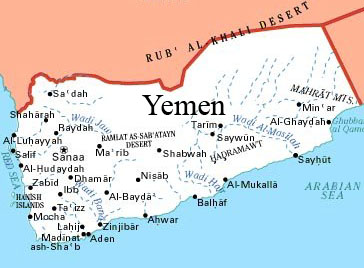 Maybe President Obama just has bad timing, or maybe his “new” strategy for Afghanistan is still gasping for air. How are we supposed to interpret back to back civilian casualties - bad luck or bad policy?
Maybe President Obama just has bad timing, or maybe his “new” strategy for Afghanistan is still gasping for air. How are we supposed to interpret back to back civilian casualties - bad luck or bad policy?You can blame the Taliban for luring US and ISAF forces into a trap, though this is what they’re supposed to do so falling for the trap is hardly an excuse. Yet no blame can be assigned to operational or technical failures by America or NATO. In their heads everything wrong in Afghanistan is the Taliban’s fault.
But not in reality.
Start with the bombing in Ghazi Khan village, in Narang District of the eastern province of Kunar, where Afghan and Western officials continue to squabble over both the event itself and blame for it. The UN, realizing the mess NATO is creating by denying children casualties, has tried to mitigate the outrage while sticking behind its Western brethren.
Kai Eide, in a statement on Thursday, cautioned that the facts were in dispute, but admitted the UN’s preliminary investigation corroborated some aspects of the version given by local people to the Afghan government’s investigation. “Based on our initial investigation, eight of those killed were students enrolled in local schools,” the statement read.
And yet Eide felt compelled to add, “There is also evidence to strongly indicate that there were insurgents in the area at the time.”
No words could be so revealing as to a lack of counterinsurgency understanding. Eide’s statement is nothing more than a whimper twisted out of him by guerrilla warfare. “Insurgents in the area” will never be a valid excuse for civilian casualties, for that is the point of an insurgency - to live among the people. Trading insurgent kills for civilian deaths is conventional warfare, not counterinsurgency where the population must be prioritized above all.
This is why General McChrystal states, to the apparent ignorance of Eide and other Western officials, that, “It is better to miss a target than to cause civilian casualties. We can always target enemy leaders later. We can't make up for the fact that we killed civilians."
McChrystal’s warning, issued during his August review, has yet to trickle down to the last foreign soldier and official like it should.
Now, the possibility remains for more Taliban deceit because the crime is so heinous that it seems impossible. A statement from Karzai’s office gave the following account: “The delegation concluded that a unit of international forces descended from a plane Sunday night into Ghazi Khan village, in Narang District of the eastern province of Kunar, and took 10 people from 3 homes, 8 of them school students in grades 6, 9 and 10, one of them a guest, the rest from the same family, and shot them dead.”
A statement issued Thursday by the Afghan National Security Directorate reaffirmed, "international forces from an unknown address came to the area and without facing any armed resistance, put 10 youth in two rooms and killed them."
Again factoring in Taliban disinformation, those “international forces” might be Taliban guerrillas. Thus the NATO account could be true, that nine militants were killed, and the Afghan version partially accurate as well - that eight children were executed by the Taliban during the chaos. Such a killing could turn the perception of the war and has the potential for mass exploitation, but again, this action would be just as suicidal as in the West’s case.
The possibility also opens of Karzai covering up the Taliban’s plot so to exploit the casualties internationally.
Nevertheless, foreign officials would still be wise to lay low until they can prove their account. Eide’s excuse that militants were in the area is no less foolish even if the Taliban executed these children. Leading with foreign forces during a nighttime raid is also contradictory to counterinsurgency and supposed to be McChrystal’s law.
International forces, "conducted this operation on their own without informing any security or local authorities of Afghanistan,'' said the Afghan National Security Directorate."
Nor is another mistake at this time excusable.Yesterday a NATO cruise missile allegedly killed five to seven civilians, including three children, in a village in the Babajid district of Helmand province, near the capital Lashkar Gah. Again opposing accounts emerged. NATO spokesman Lt. Col. Todd Vician told reporters, “A single missile was launched against individuals whom we believed were engaged in an attack... Every precaution was made to ensure there were no civilians in the vicinity at the time of the strike.”
Maybe not. Dawood Almady, spokesman for governor Mohammad Golab Mangal, said a convoy of British troops was passing a village about five miles from the capital and was attacked by insurgents from two buildings.
“The troops responded and called in an air-strike and caused the death of some civilians and the wounding of others,” Mr. Almady said.
Sounds like a point and click air-strike without every precaution for civilians. The following account could certainly be tainted, but Agha Jan, a resident of the village, claimed, “People were in the gardens to water their plantings. The plane without a pilot targeted them and they were killed.”
Furthermore, Col. Vician commits the same error as Eide and NATO in Kunar, saying, “There has been persistent insurgent activity in that area over the last couple of days, including laying I.E.D.’s close to the base.”
Again Western officials are attempting to justify civilian casualties because of insurgent activity when the point of insurgent activity is drawing said fire. Saying “but insurgents were in the area” is a disturbing sign of counterinsurgency illiteracy because insurgents in the area is an invalid excuse. General McChrystal seems to understand this on the surface, though how much deeper remains to be seen.
Unfortunately for Obama his surge is off to a whimper.








